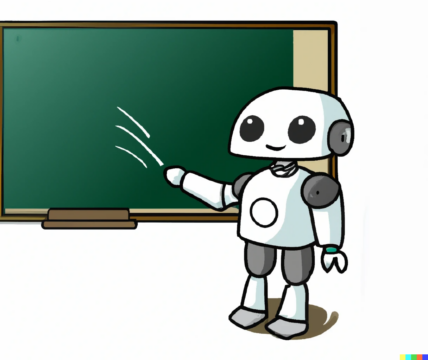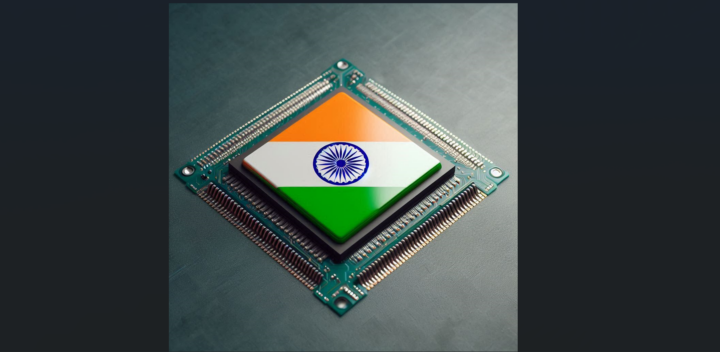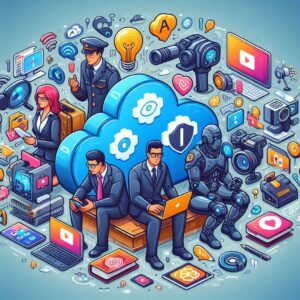Recently, India has done well in ensuring access and universalization of pre-primary and secondary education, as seen in the National Education Policy 2020. Still, India lags behind in several parameters, such as quality of teaching-learning outcomes, enrolment in higher education, and the quality of skills imparted to its youth.
The considerable shortage of properly qualified and trained teachers, and consequently, the poor learning levels at schools is an issue that needs to be suitably addressed. Quite often, schools fail to invest enough on the development of teachers. Moreover, India faces a shortage of teachers and qualified head teachers. The problem is grave in tier-II and tier-III cities.
Read more: Upskilling of Teachers: An Absolute Necessity in the Current Times
The Tech Panda spoke to Rishabh Khanna, Cognitive Scientist and Founder of Suraasa, a higher education EdTech and career lifecycle management jobtech platform focused on only school teachers. Suraasa partners with schools to hire Suraasa-qualified teachers at zero cost.
He says that the need of the hour is to empower the teacher education system and prepare Indian teachers to proudly bag jobs and placements not only in India but internationally too. While we see the advent of many EdTech startups that focus on students, a less talked about category is the use of technology in teacher education.

Rishabh Khanna
Considering how classrooms have shifted online, teachers need to be really comfortable in the digital environment without feeling intimidated
“At the moment, only teacher training workshops are being held in school but what is required is a better way for teachers to acquire knowledge and skills. Just like it’s already happening for so many professions out there,” says Khanna.
He advocates the implementation of AI-based career mentorship.
“Teachers hardly have any kind of career guidance at the moment. Use of AI will enable teachers to predict their growth and plan accordingly,” he says.
Another way he recommends is creating online skill portfolios of teachers.
“This will enhance the quality of our teachers, where teachers will be able to express their potential with actual evidence. Also, considering how classrooms have shifted online, teachers need to be really comfortable in the digital environment without feeling intimidated,” he adds.
Huge Gap Between Supply and Demand of Skilled Teachers
There are several problems that exist today because of poor teacher education. The present learning entails that a teacher should be equipped with know-how that is beyond the subject matter. When schools had to be shut during the lockdown, metros and tier-I cities experienced a massive engagement in online education and live streaming classes. But the gap in digital education was evident in tier-II and tier-III cities, which often remain deprived of the needed infrastructure and technology. To add to the issue, most teachers were found to be lacking in the relevant skills to promote digital education.
Khanna says that there is a huge gap between supply and demand of skilled teachers. Also, ineffective teaching styles have resulted in students’ lack of interest in learning.
Teachers need to upgrade themselves with 21st century pedagogical skills. They must thoroughly understand the learning needs of 21st-century school children or students, who are digitally-savvy, inundated with information, and easily distracted
“Teaching, as a career, has become less attractive for the youth. Teachers feel acute dissatisfaction in their jobs. There are either no or super-slow promotions. Due to the decrease in the number of quality teachers, the overall productivity of the education system has gone down,” he says.
He adds that what teachers need is faster career growth with higher salary as well as career guidance and mentorship.
“The intellectual, social, emotional, and cognitive growth of teachers is required. Teachers need to upgrade themselves with 21st century pedagogical skills. They must thoroughly understand the learning needs of 21st-century school children or students, who are digitally-savvy, inundated with information, and easily distracted,” he explains.
The Indian EdTech Sector
The Indian EdTech sector has been expanding after COVID-19 started. According to reports, the burgeoning sector in India is worth over INR 15,000 crore now. More time is being spent on EdTech platforms. According to a report by BARC India and Nielsen, there has been a 30% increase in the time spent on education apps since the lockdown commenced.
“The need to stay relevant has pushed people out of their comfort zone and to upskill themselves in the COVID scenario leading to an exponential growth in the EdTech sector,” explains Khanna.
A new challenge faced by teachers in this setup, is that teachers have to be digital content producers instead of just being content consumers
The sector is also witnessing an increase in investments.
“The EdTech space is also the new eye candy for Venture Capital (VC) investments, which have almost tripled during January to July 2020 to US$ 998 million, from US$ 310 million, a year ago, making EdTech the most funded sector in 2020,” he informs.
But how are Indian teachers coping with the redefined roles by EdTech platforms?
“Tech has brought transparency to teaching-learning processes. Teaching is now a quantifiable and measurable process and has made teachers rethink their pedagogical approach. It has created a need to find innovative ways to engage students and deliver the required learning outcomes. A new challenge faced by teachers in this setup, is that teachers have to be digital content producers instead of just being content consumers,” he replies.
Predictions for EdTech Startups in 2021
As 2021 proceeds, Khanna predicts that online learning will continue along with a fusion of the traditional methods and data driven insights will lend an upper hand to EdTechs.
The next phase of EdTech will see collaborations with educational institutions such as online teaching aids becoming part of the curriculum itself as learning resources, enabling a satisfying and accessible learning environment
“Continuous learning will become the norm. Customized learning experiences will dominate the scene,” he says.
Read more: {EdTech Startup Watch: GuruQ} Connecting Students with the Right Tutor
He also predicts an amalgamation of cultural values with quality content and increase in use AI and Virtual Reality to create engaging classroom learning experiences.
“The next phase of EdTech will see collaborations with educational institutions such as online teaching aids becoming part of the curriculum itself as learning resources, enabling a satisfying and accessible learning environment,” he concludes.












